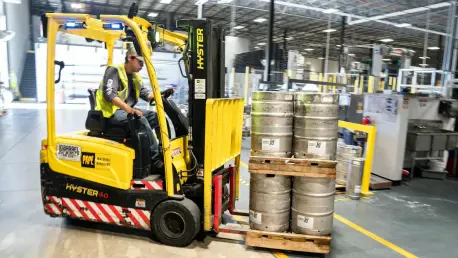Today, we’re thrilled to sit down with Kwame Zaire, a renowned manufacturing expert with a deep passion for electronics, equipment, and production management. With his extensive background in predictive maintenance, quality control, and safety, Kwame offers unique insights into the evolving landscape of electric vehicle (EV) manufacturing. In this conversation, we dive into the significance of innovative training facilities, the future of workforce development in the EV industry, and how cutting-edge programs are shaping the next generation of skilled professionals. We’ll explore topics like the strategic importance of location, the impact of specialized training on job creation, and the role of technology in preparing workers for modern manufacturing challenges.
What inspired the creation of a dedicated EV training facility like the one recently opened in Georgia, and why was Bryan County chosen as the location?
The inspiration behind such a facility often comes from the urgent need to bridge the skills gap in the rapidly growing EV sector. As automakers shift toward electric and hybrid vehicles, they require a workforce that’s trained in very specific, high-tech processes. Building a dedicated center ensures that employees are ready to hit the ground running. As for Bryan County, it’s likely a strategic choice due to its proximity to major manufacturing hubs and infrastructure, like ports and highways, which are critical for logistics. Additionally, the area might offer a strong pool of potential workers eager for career opportunities, alongside supportive local policies that encourage industrial growth.
How does this training center stand out from other workforce development programs in the region?
What makes this center unique is its laser focus on EV manufacturing, which is a first for the state. Unlike general manufacturing or automotive training programs, this facility is tailored to the nuances of electric and hybrid vehicle production, incorporating advanced technologies and simulations that mirror real plant operations. It’s not just about teaching skills—it’s about immersing trainees in the exact environment they’ll work in, which is a game-changer for preparing a highly specialized workforce.
Can you walk us through the kinds of hands-on training experiences offered at a facility like this?
Absolutely. These centers typically feature a range of innovative setups. For instance, there’s often an introductory line where trainees build foundational skills like timing and coordination in a controlled, digital space. Then you’ve got full-scale production lines that simulate the real assembly process, complete with quality checks to mimic actual EV manufacturing. There are also labs for working with high-voltage battery systems, which are critical for EVs, alongside virtual reality environments for safety training. Finally, automation labs focus on teaching skills like programming controllers and handling industrial sensors, ensuring trainees are fluent in the tech driving modern manufacturing.
With the capacity to train hundreds of individuals at a time, how do you see this impacting job creation in the local community?
The scale of training capacity—say, over 800 people at once—means a significant pipeline of skilled workers entering the job market quickly. This can transform a local economy by creating thousands of jobs over the next decade, ranging from assembly line technicians to automation specialists and safety inspectors. Beyond direct employment, it spurs growth in related sectors like suppliers and services, while also elevating the region’s reputation as a hub for advanced manufacturing, attracting further investment.
How do partnerships with state workforce programs and technical colleges contribute to the success of such training initiatives?
These collaborations are crucial. State programs and technical colleges bring expertise in curriculum design and workforce development, ensuring the training aligns with industry needs. They often help customize the programs to match the specific processes and technologies used in the manufacturing plant. This partnership also builds a bridge between education and industry, guaranteeing that trainees aren’t just learning generic skills but are prepared to step directly into roles with confidence and competence.
In what ways does a facility like this prepare workers for the future of vehicle manufacturing, especially as technology continues to evolve?
These centers are forward-thinking by design. They don’t just teach current processes; they incorporate adaptable training methods that can evolve with technology. By focusing on automation, digital simulations, and high-voltage systems, they ensure workers are comfortable with cutting-edge tools and can pivot to new innovations as they emerge. It’s about building a mindset of continuous learning, so the workforce remains agile in an industry that’s changing at lightning speed.
What’s your forecast for the future of EV manufacturing training and its role in shaping the broader automotive industry?
I believe EV manufacturing training will become a cornerstone of the automotive sector in the coming years. As the world moves toward sustainable transportation, the demand for skilled workers in this space will skyrocket. Training facilities like this will set the standard, not just for EVs but for integrating advanced tech across all vehicle types. We’ll likely see more such centers popping up globally, fostering a workforce that’s not only technically proficient but also innovative, driving the industry toward greater efficiency and environmental responsibility.









